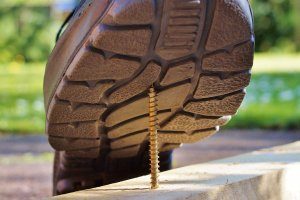Need Immediate help? Call 717-397-1010
After Hours Call / Text 717-471-2168
Need Immediate help? Call 717-397-1010
After Hours Call / Text 717-471-2168
Forging a new claim under the Pennsylvania Workers’ Compensation Act can be daunting. The beginning stages can be tough and can determine how smoothly your recovery will go. In the last blog post, we explored half of the six types of Worker’s Compensation and how they work to aid workers in their recovery process after a work-related injury.
In this post, we will look at the other three types of Worker’s Compensation in Pennsylvania and what can be covered by insurance after a work injury.
Any medical care that is necessary for recovery and is deemed reasonable and medically-related to your work injury is required to be covered by the employer. This can extend beyond the typical doctor’s visitations such as the cost of renovations to a home or vehicle for those that are severely injured. Unlike other types of compensation, there is no real limit or restriction on medical expense coverage. This is to ensure injured workers receive the necessary care to return to the work force.

Not all cases are cut and dry. In some cases, an injury can result in a bigger loss than goes beyond typical coverage under the Act. Payment for such injuries is equal to total disability benefit rates for the same time period and healing periods after the injury. Examples of such injuries include loss of hearing or vision, along with amputation of a body part such as fingers, hands and toes.
When injury leads to death, there can still be compensation involved. If the worker injured dies as the result of an occupational injury or illness within 300 weeks of the injury or of the last exposure to the hazard that led to the condition, the family may collect benefits. This includes $3,000 for funeral expenses and the widow or widower is entitled to the compensation the worker would have received if they did not die until he or she remarries.
Children of the worker are also entitled to compensation until the turn 18 years old, or 23 years old if they are in school such as an accredited college. The benefits collected by the children or the spouse is equal to the percentage of what the deceased worker would have made on average. This becomes the same amount that would have been collected in a total disability case.
If you or your loved one was injured at work, your family is entitled to compensation. Contact our law firm today to find out how our expertise can help your claim.